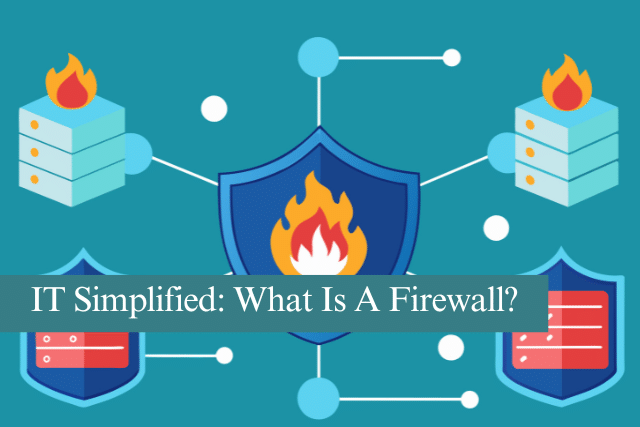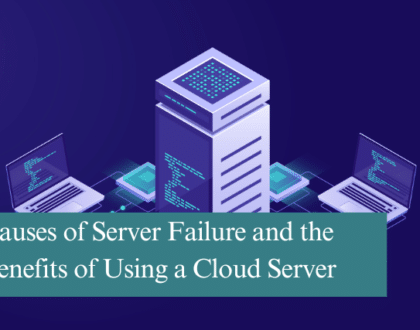
Whether you’re a small business owner, an IT professional, or just someone looking to safeguard your personal data, understanding the basics of cybersecurity is essential. One of the most fundamental elements of cybersecurity is a firewall. But what exactly is a firewall, and why is it so important?
Understanding Firewalls
A firewall is a security system designed to monitor and control incoming and outgoing network traffic based on predetermined security rules. It acts as a barrier between a trusted internal network and untrusted external networks, such as the internet. In essence, a firewall is like a security guard for your digital assets, determining what traffic is allowed in and out of your network.
Firewalls have been a cornerstone of IT security for decades and continue to evolve to meet new threats. They play a crucial role in preventing cyberattacks, protecting sensitive data, and ensuring the smooth operation of networks.
Types of Firewalls
Firewalls come in different types, each with unique features suited to specific security needs. The main types include:
- Packet Filtering Firewalls: These are the most basic type of firewall. They inspect packets of data and allow or block them based on predefined rules, such as source and destination IP addresses, protocols, and ports.
- Stateful Inspection Firewalls: More advanced than packet filtering firewalls, stateful firewalls track active connections and make dynamic decisions based on the state of the connection, adding an extra layer of security.
- Proxy Firewalls: Acting as an intermediary between users and the internet, proxy firewalls filter requests at the application level, hiding the internal network structure and improving anonymity and security.
- Next-Generation Firewalls (NGFWs): These offer a combination of traditional firewall features with additional security functions, such as intrusion prevention, deep packet inspection, and malware detection, making them a robust defence against modern cyber threats.
- Cloud Firewalls: Designed for cloud-based environments, these firewalls provide scalable and flexible protection for cloud applications and services.
Why Are Firewalls Important?
Firewalls play a critical role in cybersecurity by providing several key benefits:
- Threat Prevention: Firewalls block unauthorised access to your network, preventing cybercriminals from exploiting vulnerabilities.
- Data Protection: By filtering traffic, firewalls safeguard sensitive information from being accessed or stolen by hackers.
- Network Performance Optimisation: By controlling and monitoring traffic, firewalls help reduce congestion and enhance overall network performance.
- Compliance with Security Regulations: Many industries have stringent security regulations that require businesses to implement firewalls to protect customer data and ensure compliance.
Common Firewall Misconceptions
Despite their importance, there are several misconceptions about firewalls that can lead to gaps in security. Let’s clear up some of the most common ones:
- “A firewall alone is enough for complete security.” While firewalls are a vital security component, they should be used in conjunction with other cybersecurity measures like antivirus software, encryption, and employee training.
- “Only large businesses need firewalls.” Cyber threats target organisations of all sizes, and even individuals can benefit from firewall protection to safeguard their personal devices.
- “Firewalls slow down the network.” While some firewalls may introduce latency, properly configured firewalls are optimised to balance security with performance.
- “Firewalls can stop all cyberattacks.” While firewalls significantly reduce risks, they cannot stop every attack. Cybercriminals constantly develop new methods to bypass security measures, which is why continuous monitoring and updates are essential.
How to Choose the Right Firewall
Selecting the right firewall depends on your needs, network size, and security requirements. Here are a few factors to consider:
- Size and Complexity of Your Network: A small business might only need a basic firewall, whereas large organisations require more advanced solutions like NGFWs or cloud-based firewalls.
- Security Features: Look for features such as deep packet inspection, VPN support, and real-time threat intelligence.
- Ease of Management: A user-friendly firewall interface ensures smooth operation and monitoring.
- Budget Considerations: While security is essential, choosing a firewall that fits within your budget without compromising on critical features is crucial.
The Future of Firewalls
With evolving cyber threats, firewalls continue to advance. The integration of artificial intelligence (AI) and machine learning in firewalls enables real-time threat detection and automated responses. Additionally, as businesses shift towards cloud computing, cloud-native firewalls are becoming more prevalent. Investing in a next-generation firewall with intelligent threat detection capabilities will be crucial in the coming years.
Conclusion
A firewall is a fundamental component of any cybersecurity strategy. Whether you’re protecting a personal device or securing a corporate network, firewalls help prevent cyber threats, protect sensitive data, and maintain compliance with security regulations. However, firewalls alone are not enough; they should be part of a comprehensive security strategy that includes regular updates, employee training, and additional protective measures.
If you need assistance selecting, configuring, or managing a firewall for your business, our expert IT support team is here to help. Contact us today to ensure your network is secure and protected from the latest cyber threats.
Recommended Posts

The Importance of Planning in Business IT Solutions
11th April 2025


